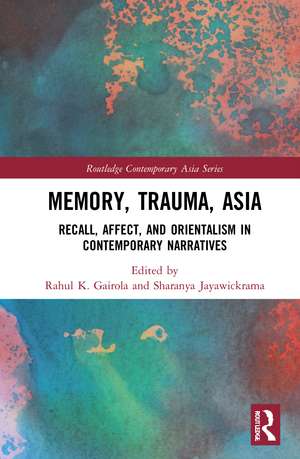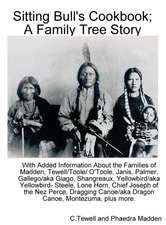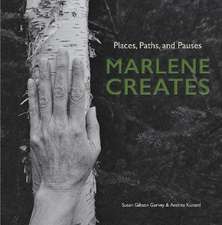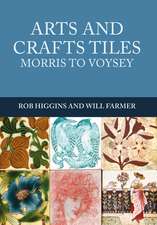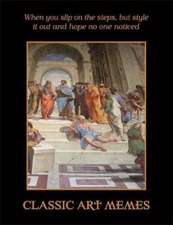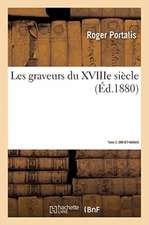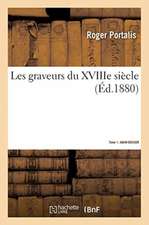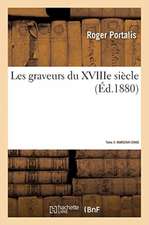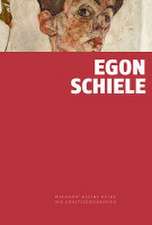Memory, Trauma, Asia: Recall, Affect, and Orientalism in Contemporary Narratives: Routledge Contemporary Asia Series
Editat de Rahul K. Gairola, Sharanya Jayawickramaen Limba Engleză Hardback – 29 ian 2021
Are memory and trauma always reliable registers of the past that translate across cultures and nations? Are supposedly pan-human experiences of suffering disproportionately coloured by eurocentric structures of region, reason, race, or religion? How are Asian texts and cultural producers yet viewed through biased lenses? How might recent approaches and perspectives generated by Asian literary and cultural texts hold purchase in the 21st century? Critically meditating on such questions, and whether existing concepts of memory and trauma accurately address the histories, present states, and futures of the non-Occidental world, this volume unites perspectives on both dominant and marginalized sites of the broader Asian continent. Contributors explore the complex intersections of literature, history, ethics, affect, and social justice across East, South, and Southeast Asia, and on Asian diasporas in Australia and the USA. They draw on yet diverge from "Orientalism" and "Area Studies" given today’s need for nuanced analytical methodologies in an era defined by the COVID-19 global pandemic.
This book will be of great interest to students and scholars invested in memory and trauma studies, comparative Asian studies, diaspora and postcolonial studies, global studies, and social justice around contemporary identities and 20th and 21st century Asia.
| Toate formatele și edițiile | Preț | Express |
|---|---|---|
| Paperback (1) | 383.17 lei 6-8 săpt. | |
| Taylor & Francis – 31 mai 2023 | 383.17 lei 6-8 săpt. | |
| Hardback (1) | 1000.27 lei 6-8 săpt. | |
| Taylor & Francis – 29 ian 2021 | 1000.27 lei 6-8 săpt. |
Din seria Routledge Contemporary Asia Series
- 18%
 Preț: 702.95 lei
Preț: 702.95 lei - 9%
 Preț: 934.94 lei
Preț: 934.94 lei -
 Preț: 325.78 lei
Preț: 325.78 lei -
 Preț: 343.95 lei
Preț: 343.95 lei - 9%
 Preț: 935.97 lei
Preț: 935.97 lei - 18%
 Preț: 1061.57 lei
Preț: 1061.57 lei - 23%
 Preț: 321.87 lei
Preț: 321.87 lei - 26%
 Preț: 821.29 lei
Preț: 821.29 lei -
 Preț: 412.57 lei
Preț: 412.57 lei -
 Preț: 399.58 lei
Preț: 399.58 lei - 18%
 Preț: 1064.70 lei
Preț: 1064.70 lei - 18%
 Preț: 1060.87 lei
Preț: 1060.87 lei - 18%
 Preț: 1057.40 lei
Preț: 1057.40 lei -
 Preț: 118.80 lei
Preț: 118.80 lei - 25%
 Preț: 825.06 lei
Preț: 825.06 lei - 49%
 Preț: 543.60 lei
Preț: 543.60 lei - 18%
 Preț: 1063.89 lei
Preț: 1063.89 lei -
 Preț: 248.10 lei
Preț: 248.10 lei - 25%
 Preț: 824.89 lei
Preț: 824.89 lei - 18%
 Preț: 704.83 lei
Preț: 704.83 lei -
 Preț: 363.20 lei
Preț: 363.20 lei - 18%
 Preț: 1062.62 lei
Preț: 1062.62 lei -
 Preț: 488.71 lei
Preț: 488.71 lei - 18%
 Preț: 1058.43 lei
Preț: 1058.43 lei - 18%
 Preț: 1058.10 lei
Preț: 1058.10 lei - 18%
 Preț: 1060.87 lei
Preț: 1060.87 lei - 18%
 Preț: 1064.01 lei
Preț: 1064.01 lei - 18%
 Preț: 1050.09 lei
Preț: 1050.09 lei - 18%
 Preț: 1061.93 lei
Preț: 1061.93 lei - 18%
 Preț: 711.10 lei
Preț: 711.10 lei - 18%
 Preț: 1059.84 lei
Preț: 1059.84 lei - 12%
 Preț: 298.61 lei
Preț: 298.61 lei -
 Preț: 364.94 lei
Preț: 364.94 lei - 18%
 Preț: 733.20 lei
Preț: 733.20 lei -
 Preț: 416.96 lei
Preț: 416.96 lei - 18%
 Preț: 1057.13 lei
Preț: 1057.13 lei - 18%
 Preț: 1057.05 lei
Preț: 1057.05 lei - 18%
 Preț: 1276.26 lei
Preț: 1276.26 lei - 18%
 Preț: 1057.05 lei
Preț: 1057.05 lei - 18%
 Preț: 1061.93 lei
Preț: 1061.93 lei - 18%
 Preț: 1109.99 lei
Preț: 1109.99 lei - 18%
 Preț: 732.06 lei
Preț: 732.06 lei
Preț: 1000.27 lei
Preț vechi: 1219.84 lei
-18% Nou
Puncte Express: 1500
Preț estimativ în valută:
191.43€ • 197.75$ • 159.31£
191.43€ • 197.75$ • 159.31£
Carte tipărită la comandă
Livrare economică 26 martie-09 aprilie
Preluare comenzi: 021 569.72.76
Specificații
ISBN-13: 9781138505582
ISBN-10: 1138505587
Pagini: 198
Ilustrații: 2
Dimensiuni: 156 x 234 x 13 mm
Greutate: 0.45 kg
Ediția:1
Editura: Taylor & Francis
Colecția Routledge
Seria Routledge Contemporary Asia Series
Locul publicării:Oxford, United Kingdom
ISBN-10: 1138505587
Pagini: 198
Ilustrații: 2
Dimensiuni: 156 x 234 x 13 mm
Greutate: 0.45 kg
Ediția:1
Editura: Taylor & Francis
Colecția Routledge
Seria Routledge Contemporary Asia Series
Locul publicării:Oxford, United Kingdom
Public țintă
Postgraduate and UndergraduateCuprins
1. The “Asian Pandemic”: Re-Thinking Memory and Trauma in Cultural Narratives of Asia Today (Rahul K Gairola and Sharanya Jayawickrama) Part I: Activating Memory as Personal Testimony 2. The Language of Trauma in Selected Short Stories by Gao Xingjian (Michael Ka-chi Cheuk) 3. Exorcising the Yellow Perils Within: Internment Trauma and Memory in Joy Kogawa’s Obasan and John Okada’s No Boy (Kerry S. Kumabe) 4. Healing from the Khmer Rouge Genocide by “telling the world”: Active Subjectivity and Collective Memory in Loung Ung’s First They Killed My Father (Nelly Mok) 5. Forgiving But Not Forgetting in The Garden of Evening Mists (Zhu Ying) Part II: Traumascapes of Body and State 6. Bonds and Companionship: the Healing Efficacy of the Picture Books of the 2011 Great East Japan Earthquake (Michelle Chan) 7. Tyrants, Typhoons, and Trauma: Spectrality and Magic Realism in Nick Joaquin’s Cave and Shadows (Jocelyn Martin) 8. Engendering Islam: Religio-Cultural Violence and Trauma in Qaisra Shahraz’s The Holy Woman (Elham Fatma, Rahul K Gairola, and Rashmi Gaur) 9. Transgenerational Hauntings in the landscape of Okinawa, Japan: Medoruma Shun’s “Army Messenger” (Kyle Ikeda)
Notă biografică
Rahul K. Gairola, PhD (University of Washington, USA) is The Krishna Somers Senior Lecturer in English & Postcolonial Literature and a Fellow of the Asia Research Centre at Murdoch University in Greater Perth, Western Australia. He is co-editor and author/co-author of five books including South Asian Digital Humanities: Postcolonial Mediations across Technology's Cultural Canon (London: Routledge, 2020); Migration, Gender and Home Economics in Rural North India (New Delhi: Taylor & Francis, 2019); and Homelandings: Postcolonial Diasporas and Transatlantic Belonging (London & New York: Rowman & Littlefield, 2016). He is co-editor of special issues of Journal of Postcolonial Writing, South Asian Review, and Asiascape: Digital Asia, and previously taught at the Indian Institute of Technology Roorkee, India; The City University of New York, and Seattle University, USA. He is a lifetime member of Pembroke College, University of Cambridge, UK.
Sharanya Jayawickrama, PhD (University of Cambridge, UK) was Assistant Professor in the Department of English Language and Literature at Hong Kong Shue Yan University, Hong Kong. She was previously Postdoctoral Fellow at the University of Macau and Lecturer in Literatures in English at the University of the West Indies, Jamaica. She was moreover an adjunct lecturer at the National University of Ireland, Galway, and King’s College, University of London, UK. Her published essays include field-shaping examinations of race, gender, and sexuality in Sri Lankan literature and culture. She passed away in September 2019.
Sharanya Jayawickrama, PhD (University of Cambridge, UK) was Assistant Professor in the Department of English Language and Literature at Hong Kong Shue Yan University, Hong Kong. She was previously Postdoctoral Fellow at the University of Macau and Lecturer in Literatures in English at the University of the West Indies, Jamaica. She was moreover an adjunct lecturer at the National University of Ireland, Galway, and King’s College, University of London, UK. Her published essays include field-shaping examinations of race, gender, and sexuality in Sri Lankan literature and culture. She passed away in September 2019.
Recenzii
"This bracing volume makes an important contribution by re-centering trauma studies in Asia. Its breadth of analyses puts Western theories of trauma to the test by probing the impact of colonialism’s violence on Asian societies. That postcolonial trauma often stems from gendered violence and state-sponsored genocide speaks volumes about the obstinacy of colonial typologies."- Gauri Viswanathan, Columbia University, USA; author of Outside the Fold: Conversion, Modernity, and Belief
"Memory, Trauma, Asia is a fascinating and timely volume of essays, which makes a substantial contribution to the ongoing ‘globalization’ of trauma studies. By focusing on the representation of trauma in an Asian context, the collection not only broadens the geographical parameters of the field, but also transforms and enriches many of its dominant theoretical paradigms. The essays themselves are notable for their diversity, exploring everything from the traumatic consequences of the Khmer Rouge genocide to the internment of Japanese Americans during World War II, from the dictatorial regime of Ferdinand Marcos to the devastating Tohoku earthquake of 2011. And this comparative focus is what ultimately makes the volume so compelling – serving as a powerful reminder of the fact that trauma is both a ‘transnational’ phenomenon and one that is deeply rooted in the specificities of human suffering."- Bede Scott, Associate Professor of World Literature, Nanyang Technological University, Singapore
"There is possibly no more strategic time to talk about trauma than the present global experience of pandemic and the flood of racialised hysteria it has unleashed. But while trauma has become an increasingly urgent topic since September 11 2001, there has been too little attention given to the trauma of colonisation and the diverse forms of trauma triggered by the centuries long global incursion of imperialism. This superb collection of essays not only corrects that imbalance by re-centring Asia, but re-defines trauma studies by re-configuring the importance of memory, enabling us to comprehend its various operations." - Bill Ashcroft, Emeritus Professor, The University of New South Wales, Australia
"This is a most timely volume to understand the nature of trauma that haunts our contemporary world. Through a collection of meticulously researched and brilliantly argued articles, the authors and editors set out to provide a mapping of trauma in cultural narratives of Asia. Many of the insights offered here allow one to situate the current moment of Covid pandemic within a longer history of trauma in Asia, and will be part of academic discussion for a long time. Anyone interested in Asian history, its traumatic past and present, must read this book." - Baidik Bhattacharya, Associate Professor, Centre for the Study of Developing Societies, India
"This collection of essays provides sustained Asian perspectives on Trauma and Memory Studies that have so far been largely centered on European and American theorizations. In the wake of the Covid crisis, the volume rightly focuses on specific geopolitical sites and transgressive subjectivities to unearth and formulate a reading of Trauma in the Asian context. As the co-editors state, the study of trauma in South Asia particularly ‘resonates through intersecting matrices’ of region and religion, class, caste, gender and sexuality and the volume realigns its enquiry to geopolitical spaces where unseen (and often unrecorded) but deeply felt suffering has taken place in contemporary times...the book is a welcome addition to the growing body of work that juxtaposes Postcolonial Studies and Trauma theory without subsuming or subverting forms of violence or dislocation under a ‘categorical singularity.’" - Debjani Sengupta, author of The Partition of Bengal: Fragile Borders and New Identities (Cambridge University Press, 2015) and Associate Professor of English, Indraprastha College for Women, University of Delhi, India
"Memory, Trauma, Asia definitively establishes the much-needed theoretical connections between trauma studies, postcolonial studies, and Asian area studies by urgently addressing the key question of how trauma, affect, and pain translate across cultures and the globe. While grounded in geographic and literary specialties, the excellent essays in this timely collection spark a broader debate on how we can decolonise trauma studies. The volume does so by integrating comparative Asian literary and cultural studies into a critical dialogue blended with theories of affect and memory. This heartfelt volume is a moving tribute to Dr Sharanya Jayawickrama, who was the key interlocutor from the conception of this project together with Dr Rahul Gairola." - Neelam Srivastava, Professor of Postcolonial and World Literature at Newcastle University, UK
"Memory, Trauma, Asia is a fascinating and timely volume of essays, which makes a substantial contribution to the ongoing ‘globalization’ of trauma studies. By focusing on the representation of trauma in an Asian context, the collection not only broadens the geographical parameters of the field, but also transforms and enriches many of its dominant theoretical paradigms. The essays themselves are notable for their diversity, exploring everything from the traumatic consequences of the Khmer Rouge genocide to the internment of Japanese Americans during World War II, from the dictatorial regime of Ferdinand Marcos to the devastating Tohoku earthquake of 2011. And this comparative focus is what ultimately makes the volume so compelling – serving as a powerful reminder of the fact that trauma is both a ‘transnational’ phenomenon and one that is deeply rooted in the specificities of human suffering."- Bede Scott, Associate Professor of World Literature, Nanyang Technological University, Singapore
"There is possibly no more strategic time to talk about trauma than the present global experience of pandemic and the flood of racialised hysteria it has unleashed. But while trauma has become an increasingly urgent topic since September 11 2001, there has been too little attention given to the trauma of colonisation and the diverse forms of trauma triggered by the centuries long global incursion of imperialism. This superb collection of essays not only corrects that imbalance by re-centring Asia, but re-defines trauma studies by re-configuring the importance of memory, enabling us to comprehend its various operations." - Bill Ashcroft, Emeritus Professor, The University of New South Wales, Australia
"This is a most timely volume to understand the nature of trauma that haunts our contemporary world. Through a collection of meticulously researched and brilliantly argued articles, the authors and editors set out to provide a mapping of trauma in cultural narratives of Asia. Many of the insights offered here allow one to situate the current moment of Covid pandemic within a longer history of trauma in Asia, and will be part of academic discussion for a long time. Anyone interested in Asian history, its traumatic past and present, must read this book." - Baidik Bhattacharya, Associate Professor, Centre for the Study of Developing Societies, India
"This collection of essays provides sustained Asian perspectives on Trauma and Memory Studies that have so far been largely centered on European and American theorizations. In the wake of the Covid crisis, the volume rightly focuses on specific geopolitical sites and transgressive subjectivities to unearth and formulate a reading of Trauma in the Asian context. As the co-editors state, the study of trauma in South Asia particularly ‘resonates through intersecting matrices’ of region and religion, class, caste, gender and sexuality and the volume realigns its enquiry to geopolitical spaces where unseen (and often unrecorded) but deeply felt suffering has taken place in contemporary times...the book is a welcome addition to the growing body of work that juxtaposes Postcolonial Studies and Trauma theory without subsuming or subverting forms of violence or dislocation under a ‘categorical singularity.’" - Debjani Sengupta, author of The Partition of Bengal: Fragile Borders and New Identities (Cambridge University Press, 2015) and Associate Professor of English, Indraprastha College for Women, University of Delhi, India
"Memory, Trauma, Asia definitively establishes the much-needed theoretical connections between trauma studies, postcolonial studies, and Asian area studies by urgently addressing the key question of how trauma, affect, and pain translate across cultures and the globe. While grounded in geographic and literary specialties, the excellent essays in this timely collection spark a broader debate on how we can decolonise trauma studies. The volume does so by integrating comparative Asian literary and cultural studies into a critical dialogue blended with theories of affect and memory. This heartfelt volume is a moving tribute to Dr Sharanya Jayawickrama, who was the key interlocutor from the conception of this project together with Dr Rahul Gairola." - Neelam Srivastava, Professor of Postcolonial and World Literature at Newcastle University, UK
Descriere
This volume explores the complex and surprising intersections of literature, history, ethics, affect, and social justice across the region through its wide-ranging but closely comparative focus on geo-political sites across East, South, and Southeast Asia.
